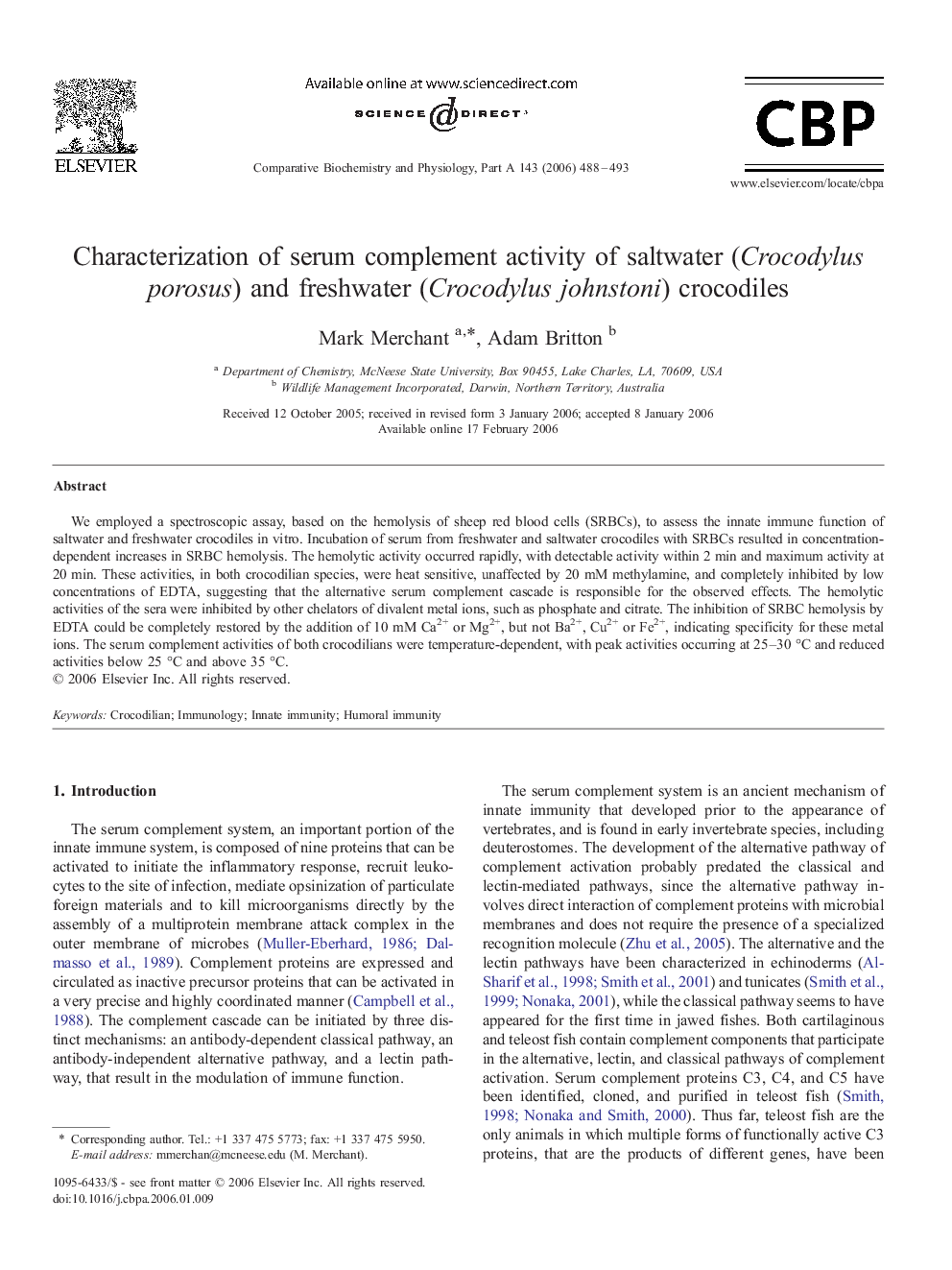| Article ID | Journal | Published Year | Pages | File Type |
|---|---|---|---|---|
| 1974944 | Comparative Biochemistry and Physiology Part A: Molecular & Integrative Physiology | 2006 | 6 Pages |
We employed a spectroscopic assay, based on the hemolysis of sheep red blood cells (SRBCs), to assess the innate immune function of saltwater and freshwater crocodiles in vitro. Incubation of serum from freshwater and saltwater crocodiles with SRBCs resulted in concentration-dependent increases in SRBC hemolysis. The hemolytic activity occurred rapidly, with detectable activity within 2 min and maximum activity at 20 min. These activities, in both crocodilian species, were heat sensitive, unaffected by 20 mM methylamine, and completely inhibited by low concentrations of EDTA, suggesting that the alternative serum complement cascade is responsible for the observed effects. The hemolytic activities of the sera were inhibited by other chelators of divalent metal ions, such as phosphate and citrate. The inhibition of SRBC hemolysis by EDTA could be completely restored by the addition of 10 mM Ca2+ or Mg2+, but not Ba2+, Cu2+ or Fe2+, indicating specificity for these metal ions. The serum complement activities of both crocodilians were temperature-dependent, with peak activities occurring at 25–30 °C and reduced activities below 25 °C and above 35 °C.
